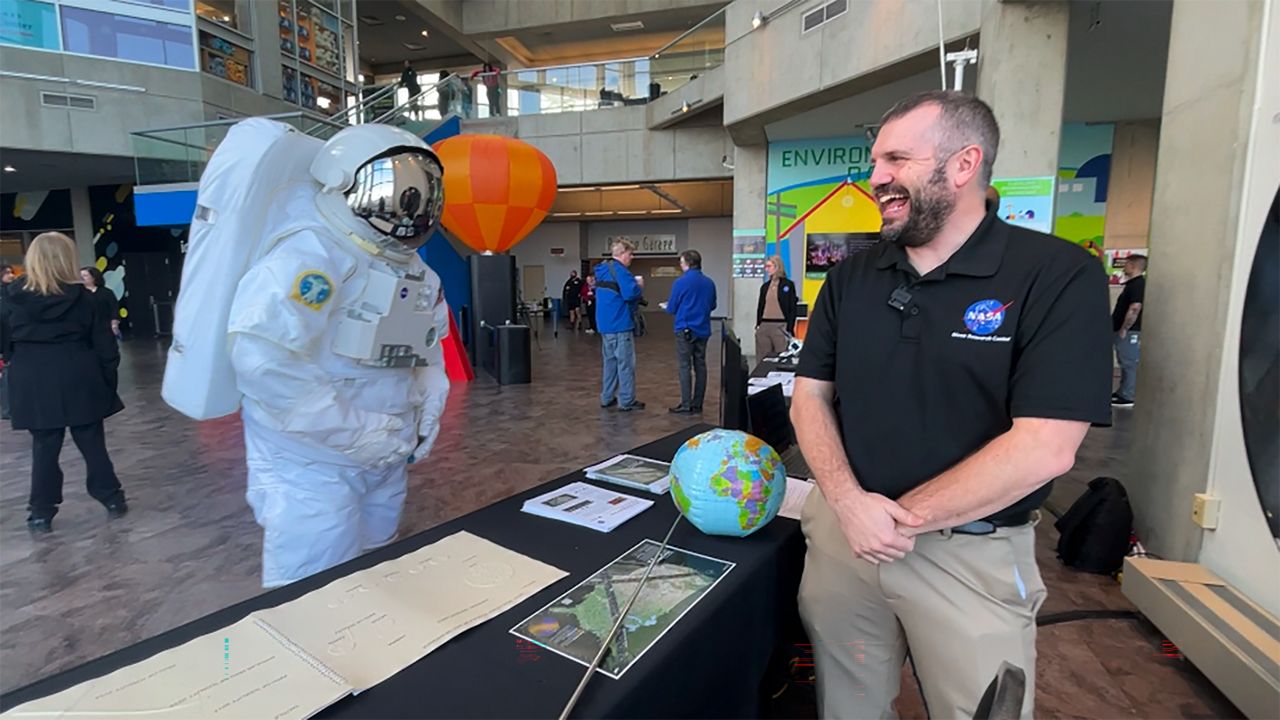CLEVELAND — A once-in-a-lifetime opportunity to view a total solar eclipse is coming on April 8.
“On April 8, what’s going to happen is the sun, the moon and the earth will line up in a very special way in which the moon will completely block out the full disc of the sun in our sky, creating a shadow on the surface of the earth that happens to cross right over Cleveland, Ohio,” Chris Hartenstine, public engagement lead for NASA’s Glenn Research Center, said.
The eclipse will be visible in totality through a strip of North America, including part of Ohio, from Cleveland down toward the southwest corner of the state.
The special event is expected to bring hundreds of thousands of visitors to the region with festivals and parties already planned for the extended weekend.
At the Great Lakes Science Center in Downtown Cleveland, leaders from across NASA will be in town for a three-day celebration from April 6 to April 8th.
The fest will be free to attend and will run from 10 a.m. to 5 p.m. daily.
There will be science-related activities, performances including a show from the Cleveland Orchestra on Sunday, local food trucks and more.
“First and foremost, we are celebrating a once-in-a-generation opportunity in the total solar eclipse coming over Northeast Ohio,” Harenstine said. “So we want to make sure people are aware, they’re prepared for safely viewing the eclipse, and they have an understanding of what an eclipse is.”
Tuesday, the festival’s planners shared some info for what everyone should know heading into the event.
It is imperative that those who want to view the eclipse get light-filtering glasses to do so, or you risk damaging your eyes with UV light.
However, you can take the glasses off when the moon is blocking the sun completely.
If you aren’t able acquire glasses in time for the event, the Great Lakes Science Center will have a tent open that will allow you view the eclipse without directly looking at it.
“We have the camera obscura,” Emalee Shechter, exhibit developer at the Science Center said. “Now, the camera obscura, it’s kind of like a pinhole camera that you might have made in the 80s, except this one has a lens inside. This lens is what we call our aperture. That affects how much light is able to pass through this hole inside of our tent. Now, when the light from the outside passes through the aperture, it projects information to the screen behind us here.”
If you do look to get some eclipse glasses, make sure you find a pair that are certified.
NASA leaders said you can check the glasses are safe by looking for a certification that says “Iso. 12312-2” on the inside of the arm.
As far as parking goes, Science Center spokespeople said their garage will be closed to the public, but people are encouraged to utilize downtown parking options or take public transit to the fest.



